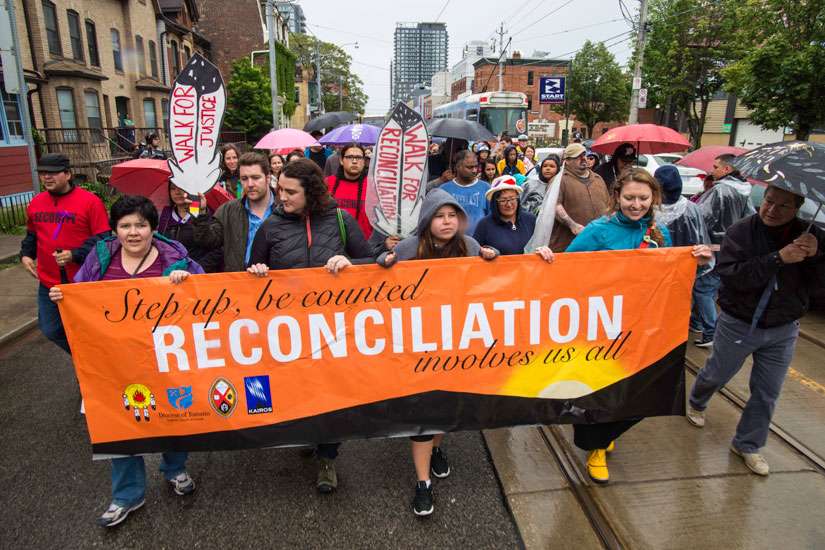“It was worthwhile for the native people in Canada,” said Fr. Milton McWatch, pastor of Holy Saviour parish in Marathon, Ont., in the Diocese of Thunder Bay. His parish has extensive relations with local First Nations’ communities.
“For the first time a lot of them were able to say, ‘Hey, you know that residential school was really awful.’ That has already had an affect and it is going to change the lifestyle, the culture, of the native people.”
He said that by providing counselling and access to social workers during the years of consultation used to draft the Truth and Reconciliation Commission’s report and 94 recommendations delivered to the federal government this June, a voice was given to thousands of residential school survivors.
“They had lost all sense of who they were and I would say that they lost their ability to speak until the Truth and Reconciliation (Commission) came along,” said McWatch, who has personally benefited from counselling in his life. “If that hadn’t happened they’d still be wondering why am I so screwed up in life.”
The commission was struck in 2008 to respond to allegations of abuse — sexual, physical and psychological — that occurred at the schools that ran for 150 years until the final school closed in 1996. More than 150,000 First Nations, Métis and Inuit children went through the government-mandated schools that for the most part were run by church entities, more than 60 per cent of which were Catholic. Today, more than 80,000 former students of the schools are still living.
But not all Canadians see the value in the six-year process that followed a class-action lawsuit brought by residential school survivors against the federal government and the various groups which ran the residential schools.
A recent survey conducted by Angus Reid Institute found that only 48 per cent of those polled, more than 1,500, felt the Truth and Reconciliation Commission was worthwhile for Canadians in general while 56 per cent were “moderately optimistic” that the commission “will result in a better situation for Canada’s aboriginal people.”
Saskatoon Bishop Donald Bolen said that’s a pessimistic view that ignores much of the “healing” which has already occurred due to the commission.
“There were truths that needed to be spoken,” said Bolen, who helped draft a formal apology from the Church to natives who had been through the residential school system. “We hear from the indigenous people that it matters to tell their story and it matters to them to hear an apology.”
He said that holding the Truth and Reconciliation Commission caused a cultural shift towards building a “strong relationship on the truth” with Canada’s First Nations.
Proof of this can be seen in the Diocese of Saskatoon, where a Diocesan Truth and Reconciliation Council has been established. The council is made up of 10 representatives from the Church as well as 10 First Nations community leaders. They are to meet every two months for discussions on topics such as youth engagement, history from an aboriginal perspective as well as missing and murdered women.
“I definitely think it was a worthwhile thing to be done,” he said. “It was an invitation to change. There was very little sense (before the Truth and Reconciliation Commission) that we needed to build relationships, that we needed to walk together. We are trying to do that now.”

